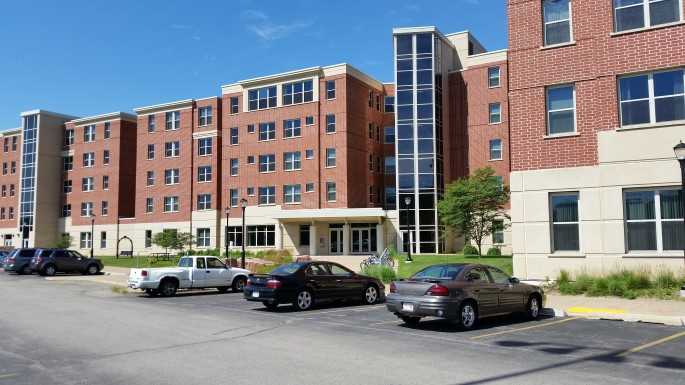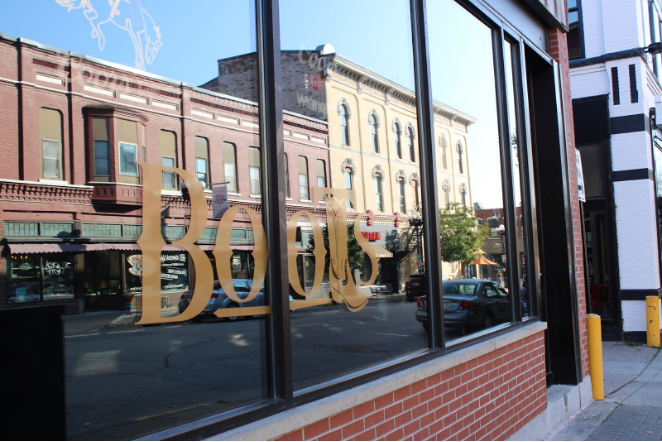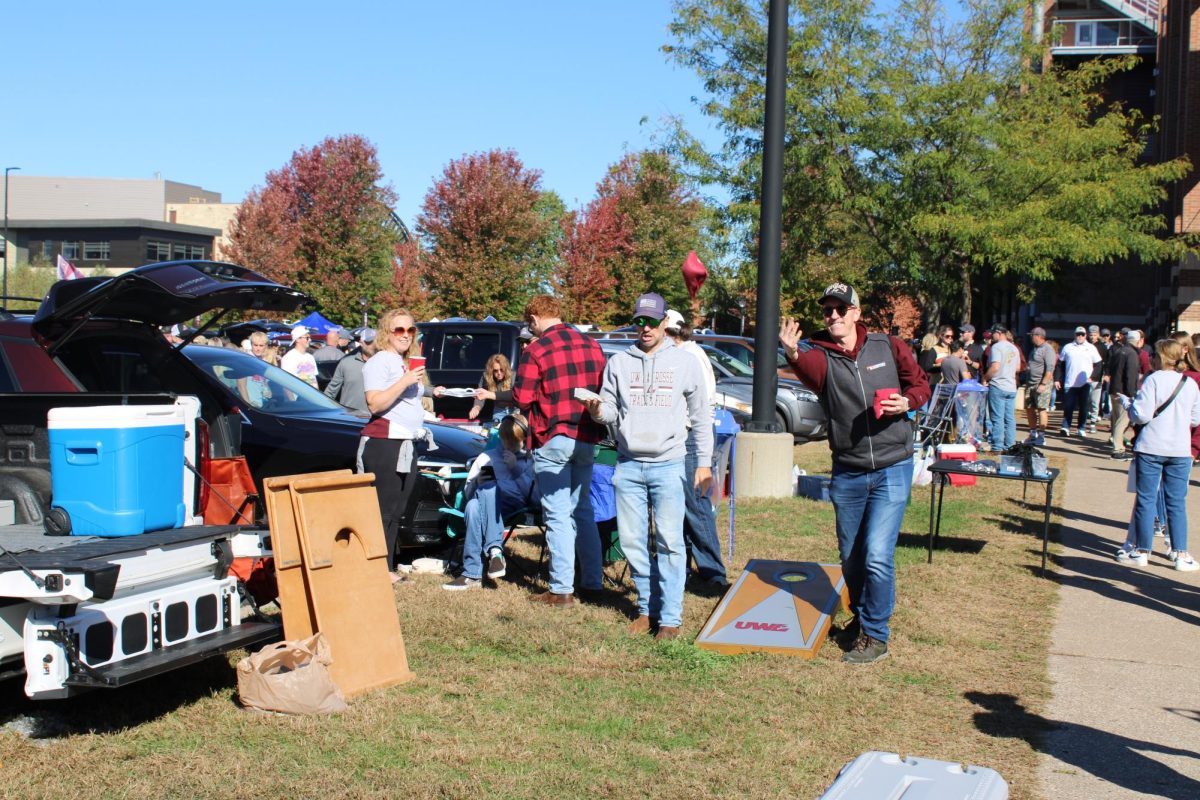If you have set foot inside Reuter Hall in the past week, you might have been greeted by the sounds of industrial fans and dehumidifiers. The fans were present due to flooding during the last weekend of October.
Around 3:15 p.m. on Sunday, Oct. 27, a sprinkler head was damaged in the residence hall, causing the system to gush water and impact the first three floors of the building. While not all students were affected by the water, all residents were asked to leave Reuter Hall for over four hours while the building’s safety was evaluated.
The Racquet Press reached out to Associate Director of Residence Life Lisa Weston about the issue.
“No student was left without access to their room, but in order to allow our contractors…to ensure all water was removed from the spaces, we relocated less than 20 students,” said Weston.
Ellyana Jensema, a second-year psychology student, was relocated to Wentz Hall because she has an emotional support animal. She spoke to The Racquet Press about her experience and how she was affected.
Jensema had driven back from Madison that afternoon and was going up to her room when she heard alarms going off. Her first thought was that someone might have burned something in the microwave, and it was simply the smoke alarms. It turned out to be much different—and much more severe.
“They [the Reuter staff] told me there’s water gushing out of our windows, there’s water everywhere,” said Jensema. “The first night [Sunday], they said we could stay, but it was so water damaged…we made the decision to stay elsewhere and got a hotel for that night.”
Jensema moved into Wentz Hall temporarily beginning the night of Monday, Oct. 28 and didn’t move back into her room in Reuter Hall until Thursday, Oct. 31.
“It was all very confusing…we were told [we would be in Wentz Hall] a week, and then we were emailed and told we would get back on Saturday, and then we were told privately that it might only be three days,” said Jensema.
Another affected student who was temporarily located to Wentz Hall said, “I don’t think any of us went to class on Monday…the second they told us we had to move out, it felt like it was a timer.”
They explained they had other prioritizes, those that come with being a full-time student. “I had a test at 2:15 and they told us this around noon. I felt all this pressure…I can’t even think about moving out right now because I have to focus on this test.”
Alaina Fitch, a second-year student at UWL, is a current resident of Reuter Hall who was fortunate enough to have family members close by who could house her and her roommates until their room was ready. Despite a more comfortable living situation, her day-to-day routine was still thrown off.
Fitch was used to going back to her room between classes and having some downtime, something many college students can appreciate. While unable to return to her room, Fitch spent lots of time in the Student Union and Murphy Library, and felt more rushed to complete her assignments, although she didn’t feel too distracted during class. The biggest issue, though, was how it affected her internship.
“I work remotely for Thrivent Financial for an internship, and I need a secure room to do my work,” said Fitch. “I lost out on a week’s wages…I couldn’t work all week.”
Students such as Jensema and Fitch who had been relocated had been compensated with five block meals and eight dollars in campus cash. Students who had been moved to a different room in Reuter only received campus cash.
“We really didn’t have any food,” said Madeline Garvens, one of Jensema’s roommates in Reuter Hall who was relocated to one of the unaffected floors. “We got two loads of laundry…in the past two days, I’ve probably done five loads of laundry. It was a little bit of help, but not as much as we needed.”
Jensema, Garvens and the other affected Reuter resident said that in their conversations with Weston, she had explained how Residence Life tries to keep communication brief in an attempt to not overwhelm students.
All the affected students The Racquet Press spoke with expressed they were unsatisfied with how the situation was handled and would have benefited from more explicit communication.
“We felt like we were at the beck and call of these people,” said the affected resident. “They always had emails, questions, but they wouldn’t answer anything for us.”
“We talked to pretty much everybody that had anything to do with Residence Life, and they kept on giving us the same answer,” said Garvens. “Everybody we talked to was really rude and treating us like we were the ones who caused [the flooding], even though we had nothing to do with it.”
Fitch acknowledged that the university had a lot to handle, but that, “it was a little frustrating to come back from class that Monday and be told I have to move out by 10 p.m.”
Weston said that as of 3:00 p.m. on Friday, Nov. 1, Reuter Hall is, “95% back to normal,” although they are still working on repairs such as replacing ceiling tiles and some other fixtures.
The university has had emergencies in the last two decades that have had a large-scale impact: In Jan. 2011, there was a fire in Drake Hall which made the hall unable to hold some 200 students for the whole spring semester.
“What we have learned any time we work through [a] crisis such as this is that the student community is so highly supportive of each other. The UWL community…tends to pull together and ask, ‘How can we help?’ in unfounded ways,” said Weston.
To help avoid this situation happening again in the future, Weston says to, “be aware that sprinkler heads and pipes are more fragile than you might imagine,” and to keep the area near the sprinkler clear. She also encourages students to consider renters insurance and to work with their family’s insurance so their personal items are covered.














